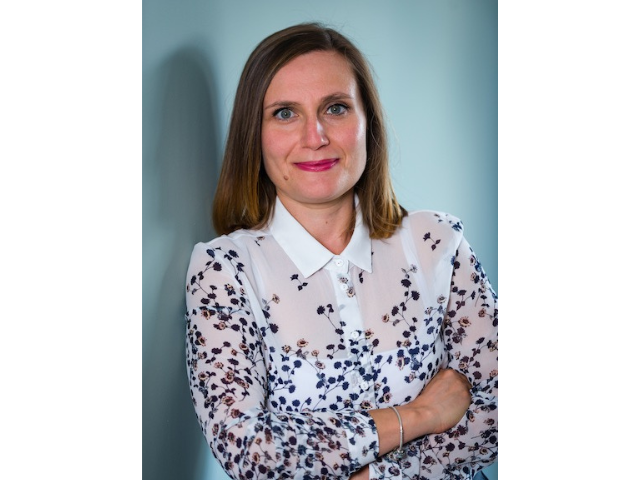Loud or quiet quitting in the Dutch labor market? The influence of work orientations on effort and turnover
Date:16 May 2024
Professor Milena Nikolova’s research project, funded by the Dutch Research Council (NWO) Open Competition XS grant, provides the first evidence that work orientations – the deeply-rooted beliefs that people have about the importance of work in their lives – explain labor market behaviors and attitudes towards effort and job search in the post-pandemic econom
Impact case: Groningen Growth and Development Centre: Databases
Date:28 March 2024
Jutta Bolt, Robert Inklaar, Bart Los and Gaaitzen de Vries are the leading experts of the Groningen Growth and Development Centre (GGDC). Their focus is on the measurement and analysis of global economic welfare. The GGDC hosts a range of comprehensive open access databases. Since 2010, Google Analytics has recorded more than 3.4 million visits to the GGDC project websites.
The benefit of smaller portions: less snacking, less waste
Date:15 March 2024
Oreo cookies and stroopwafels: Amber Werkman was working on a very tempting research topic these past years. The PhD student at the Faculty of Economics and Business went in search of a solution to overconsumption and food waste. Her conclusion: consumers snack and waste less when they are free to choose their total portion based on smaller units.
Feeling the squeeze: why are some firms more politically active than others?
Date:08 March 2024
Nonmarket political strategy refers to the actions undertaken by firms to improve their organisational performance by managing the political context in which they operate. This includes a wide variety of activities such as campaign donations, lobbying, and hiring managers with political backgrounds. Such activities can be useful in gaining legitimacy and trust from a variety of stakeholders. As political actors have the ability to influence and change the regulatory arena, they play a vital role in the results and longevity of firms, especially for multinationals. Google, Vodafone, Embraer and Toyota Motors are only a few examples of multinationals that engage in nonmarket political strategy. But why do firms engage in nonmarket political strategy and why are some more politically active than others? In a recent research paper in the European Business Review, Assistant Professor Cirana Gambirage delves into these questions together with a team of co-authors
Causes and consequences of dynamic team membership: VENI grant for Stefan Berger
Date:06 March 2024
In the summer of 2023, Stefan Berger received a Veni grant of € 280,000 from the Dutch Research Council (NWO). The assistant professor at FEB’s research programme Organizational Behavior was awarded the grant for his project about the employee experience of dynamic team membership. He talked to FEB Research about studying human collaboration in team settings, the foundations of his VENI research, and what he plans to do with the funding from NWO.
Catalyzing Change from Within: A New Perspective on Insider Social Change Agents
Date:28 February 2024
In the face of societal and environmental challenges, organizations need to do more than just make symbolic gestures or resort to greenwashing. The real change-makers are often found within the organizations themselves. They are the insider social change agents. These individuals are driving change and have the potential to significantly impact societal transformations. However, their efforts need to extend beyond isolated wins within their organizations.In a recent review in the Academy of Management Annals, Assistant Professor Katrin Heucher, along with a team of international co-authors, delves into how these individual efforts can aggregate and lead to broader, more impactful change.
Studying social service robots: potential colleagues, instead of competitors
Date:21 February 2024
As a researcher and Professor of Service Marketing, Jenny van Doorn strives to be on the forefront of new developments and is passionate about discovering consumers’ reactions to societal transitions. One of the next frontiers of societal transitions is the use of social service robots, something she is fascinated by and has already spent some years studying. Having recently received a grant from the Dutch Research Council (NWO), she can continue to do so.
Imagining a Better Future: How Management Research Can Address Societal Grand Challenges
Date:12 February 2024
In the face of significant societal and environmental challenges, the imperative to reevaluate and adjust prevailing social norms and practices is becoming increasingly apparent. A recent article featured in the Journal of Management Studies by Marvin Hanisch, Associate Professor at FEB, underscores the importance of integrating prescriptive studies into management research to drive positive change. Departing from a current emphasis on understanding the existing status quo, this approach involves envisioning how the world “should be” and the developing strategies to achieve those goals.
Impact case: Urban Freight Transport
Date:08 February 2024
Creating societal impact is one of the ambitions of FEB's research policy. This case is one of the impact cases rewarded by FEB in 2023. Paul Buijs’ research on sustainable urban freight transport actively engages with practice. Activities initially focused on Groningen and its surrounding areas, but have now expanded to national and international contexts. His involvement with practice has resulted in contributions to policy documents, but also to the development, implementation, and evaluation of sustainable urban freight transport solutions with the goal of improving accessibility and quality of life in cities.
New in Groningen: Weining Wang
Date:01 February 2024
Weining Wang recently joined the Faculty of Economics and Business as Professor of Econometrics. Before coming to Groningen, she worked at various universities in Europe: in Germany and the United Kingdom. Her research focuses broadly on financial and theoretical econometrics. More specifically, Wang works with modern machine learning methods and their applications in finance. In her new role as professor at FEB, she strives to enhance and further integrate data science research.











